Там же, с. 163.
Там же, с. 143.
Gorbachev, Memoirs, p. 490.
Nathan and Link, Tiananmen Papers, p. 173.
Su Xiaokang and Wang Luxiang, Deathsong of the River: a Reader’s Guide to the Chinese TV Series, trans. R. Bodman (Ithaca, 1991), p. 221.
R. Baum, Reform and Reaction in post-Мао China: the Road to Tiananmen (New York, 1991), p. 456.
Lin Jinhui, 28 September 2002, http://www.china.org.cn/ english/2002/Sep/44589.htm. См. также К. Louie, Theorizing Chinese Masculinity (Cambridge, 2002), p. 58.
D. Yergin and J. Stanislaw, The Commanding Heights: the New Reality of Economic Power (New York, 1998), p. 137.
Т. Friedman, “Senseless in Seattle”, New York Times, 8 December 1999. Другие примеры см. в Frank, One Market under God, pp. 61—8.
F. Fukuyama, The End of History and the Last Man (London, 1992), pp. 166—9, 206—7.
Wall Street Journal, 26 May 2000. Об этом см. Т. Frank, One Market under God. Extreme Capitalism, Market Populism, and the End of Economic Democracy (London, 2000), ch. 1.
R. Brenner, The Boom and the Bubble: the US in the World Economy (London, 2002), p. 43.
J. Hellman, “Winners Take All: The Politics of Partial Reform in Postcommunist Transitions”, World Politics 50 (1998), p. 209.
Там же, с. 223—4.
J. Stiglitz, Globalization and Its Discontents (London, 2002), P. 157.
Об этом см. Р. Reddaway and D. Glinski, The Tragedy of Market Reforms. Market Bolshevism against Democracy (Washington, DC, 2001), pp. 252—5.
S. Shirk, The Political Logic of Economic Reform in China (Berkeley, 1993), ch. 3.
H. Wu, Laogai. The Chinese Gulag (Boulder, 1992).
S. Shirk, China. Fragile Superpower (Oxford, 2007), p. 48.
D. Bell, China’s New Confucianism. Politics and Everyday Life in a Changing Society (Princeton, 2008), ch. 1.
Minxin Pei, China’s Trapped Transition: the Limits of Developmental Autocracy (Cambridge, Mass., 2006), pp. 191—6.
V. Bunce and S. Wolchik, “International Diffusion and Post-communist Electoral Revolutions”, Communist and Postcommunist Studies 39 (2006), pp. 283—4; M. Beissinger, “Structure and Example in Modular Political Phenomena: The Diffusion of Bulldozer/Rose/ Orange/Tulip Revolutions”, Perspectives on Politics 5 (June 2007), pp. 259—76.
K. Collins, “The Logic of Clan Politics. Evidence from the Central Asian Trajectories”, World Politics, 56 (2004), pp. 224—61.
A. Buzo, The Guerilla Dynasty: Politics and Leadership in North Korea (London, 1999), p. 206.
S. Eckstein, Back from the Future: Cuba under Castro (Princeton, 1994), pp. 233—7.
Цит. по O. Starn, “Maoism in the Andes. The Communist Party of Peru-Shining Path, and the Refusal of History”, Journal of Latin American Studies 27 (1991), p. 399.
Там же, с. 409.
J. Nochlin, Vanguard Revolutionaries in Latin America (Boulder, 2003), p. 63.
С McClintock, “Peru’s Sendero Luminoso Rebellion. Origins and Trajectory”, in S. Eckstein (ed.), Power and Popular Protest Latin American Social Movements (Berkeley, 2001), p. 83.
Starn, “Maoism”, p. 416.
A. Vanaik, “The New Himalayan Republic”, New Left Review, 49 (2008), p. 63.
M. Mohanty, “Challenges of Revolutionary Violence. The Naxalite Movement in Perspective”, Economic and Political Weekly, 22 июля 2006 r.
С Sreedharan, “Karl and the Kalashnikov”, http://www.rediff. com/news/1998/ aug/25pwg.htm, 25 августа 1998 r.
Об этом см. N. Henck, Subcommander Marcos. The Man and the Mask (Durham, NC, 2007), pp. 365—6.
Интервью с Г. Маркесом и Р. Помбо, “The Punch Card and the Hour Glass”, New Left Review (May-June, 2002), p. 70.
B. Brecht, “To Those Born Later”, trans. J. Willett, R. Mannheim and E. Fried, in P. Forbes, Scanning the Century. The Penguin Book of the Twentieth Century in Poetry (London, 2000), pp. 55—7.
P. Neruda, Memoirs (London, 1976), pp. 332—3.
T. Paterson, “A Harsh Lesson for Germany, Courtesy of Its Socialist Past”, Independent, 22 октября 2008 г.

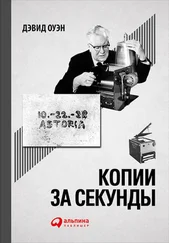
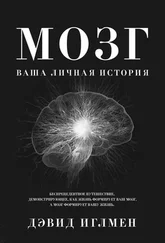

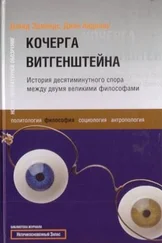

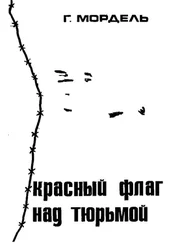
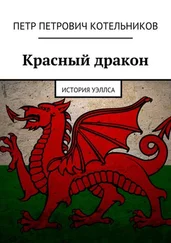
![Рауф Габидулин - История коммунизма в России [litres]](/books/431152/rauf-gabidulin-istoriya-kommunizma-v-rossii-litres-thumb.webp)

